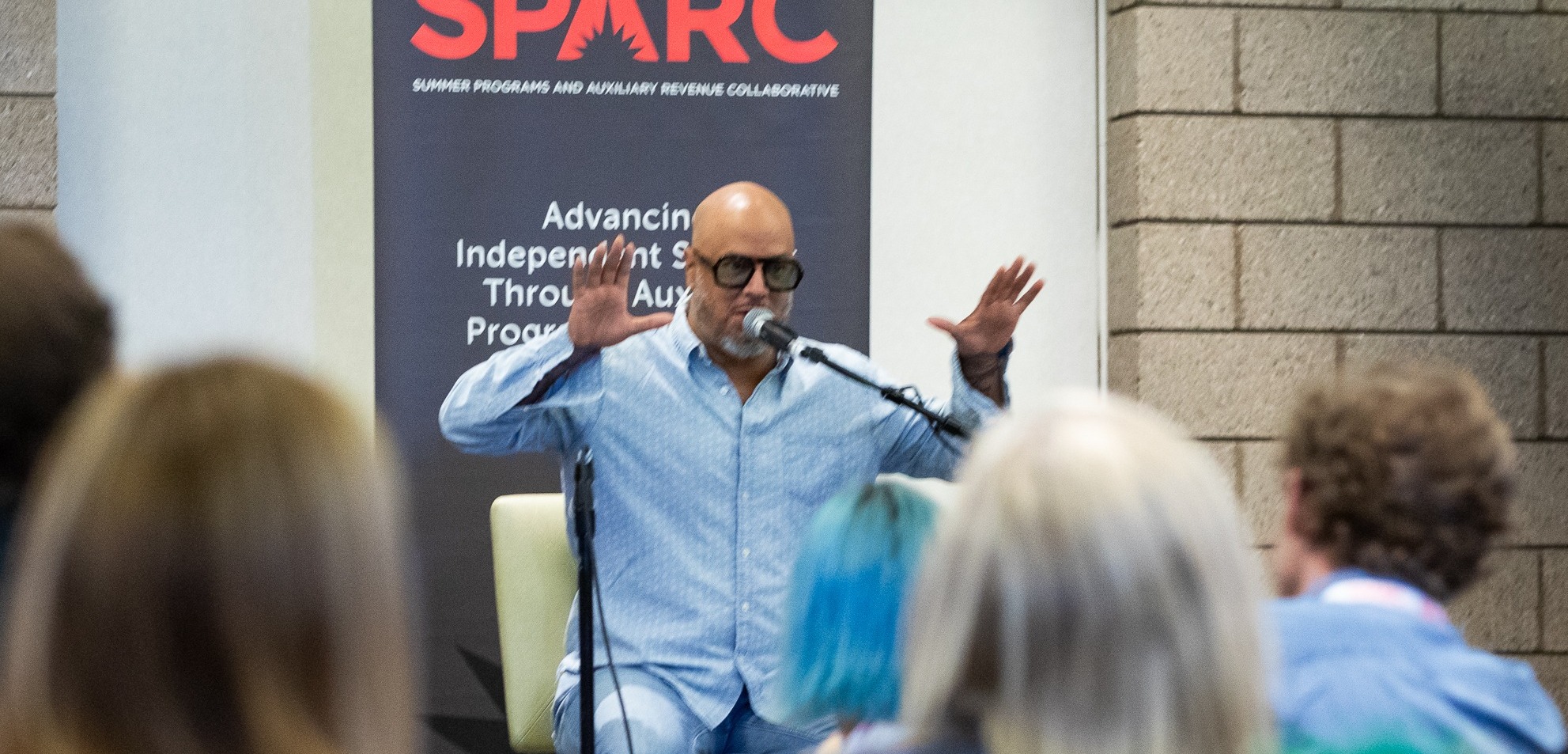Samuel James Owned the Keynote Performance with Storytelling and Blues
 SPARC’s 2023 National Conference began with a keynote performance by blues guitarist, singer, and storyteller Samuel James. If you were lucky enough to be there, chances are you’re still thinking about it. Samuel James is all about communication, from telling his own story to playing the Delta blues to joking about how SPARC’s own David Sullivan “gave away his secrets” while introducing him to the crowd. He’s quick, charming, and gifted. But what happened that morning was a whole lot more than a story, more than some gorgeous, toe-tapping blues.
SPARC’s 2023 National Conference began with a keynote performance by blues guitarist, singer, and storyteller Samuel James. If you were lucky enough to be there, chances are you’re still thinking about it. Samuel James is all about communication, from telling his own story to playing the Delta blues to joking about how SPARC’s own David Sullivan “gave away his secrets” while introducing him to the crowd. He’s quick, charming, and gifted. But what happened that morning was a whole lot more than a story, more than some gorgeous, toe-tapping blues.
James challenged us with two essential questions. First, what is the story we tell about ourselves and others? Second—and more importantly—are we willing to examine and question that narrative?
Consider how James told his own story. He said he is a “careful person,” then gave a few examples of his carelessness, illustrating how he must always question how he defines himself. We get so attached to our own narratives that we forget they are not set in stone. Narratives are constructions we use to understand ourselves and our world. They are, by nature, made to be questioned.
This was not simply self-deprecation on James’ part. It was an invitation for us to question our own stories, to share in James' awareness that to do so is empowering and opens us up to connect more fully with humanity. If we think we already know ourselves and those around us, how can we change and grow? How can we be surprised and enlightened?
After performing one of his blues songs, James described how music can be used to “smuggle information.” Don’t assume the lyrics are meant to be taken literally, he said, when he mentioned the lyrics about killing one’s lover. That’s not actually about a lover. That’s about someone in power, a boss, someone with the kind of privilege that can hurt you, and you can’t talk straight about it without fear of reprisal. So, you write in code and smuggle the truth of that injustice into the world. We must work to understand the deeper meaning of what someone is trying to tell us, especially someone who is scared and angry and who may live under oppression.
That’s the brilliance of what James did that morning: he smuggled information to us so gently that we may not have noticed how we changed. He didn’t say, “Don’t trust everything you think you know. Don’t think you have yourself figured out. Don’t trust your assumptions about others.” He modeled it for us by doing it himself and by showing us how to examine the meaning of the music he played.
How does this matter to us in the auxiliary world? Of course, we all benefit from learning to create authentic human connections with our colleagues and friends. But our willingness to question our assumptions about ourselves and those around us can fundamentally change how we communicate by making us more thoughtful, more open, and better listeners. Whether it’s with our staff or students, with teachers or CFO’s, with the head of school or with parents, ensuring that we are flexible and willing to change when necessary is an essential part of our jobs. Especially since most of us are working solo, doing so will make us more creative and better problem solvers. Being open and willing to ask hard questions about ourselves, as James taught us, is not just a human virtue. It’s smart and strategic relationship-building.
